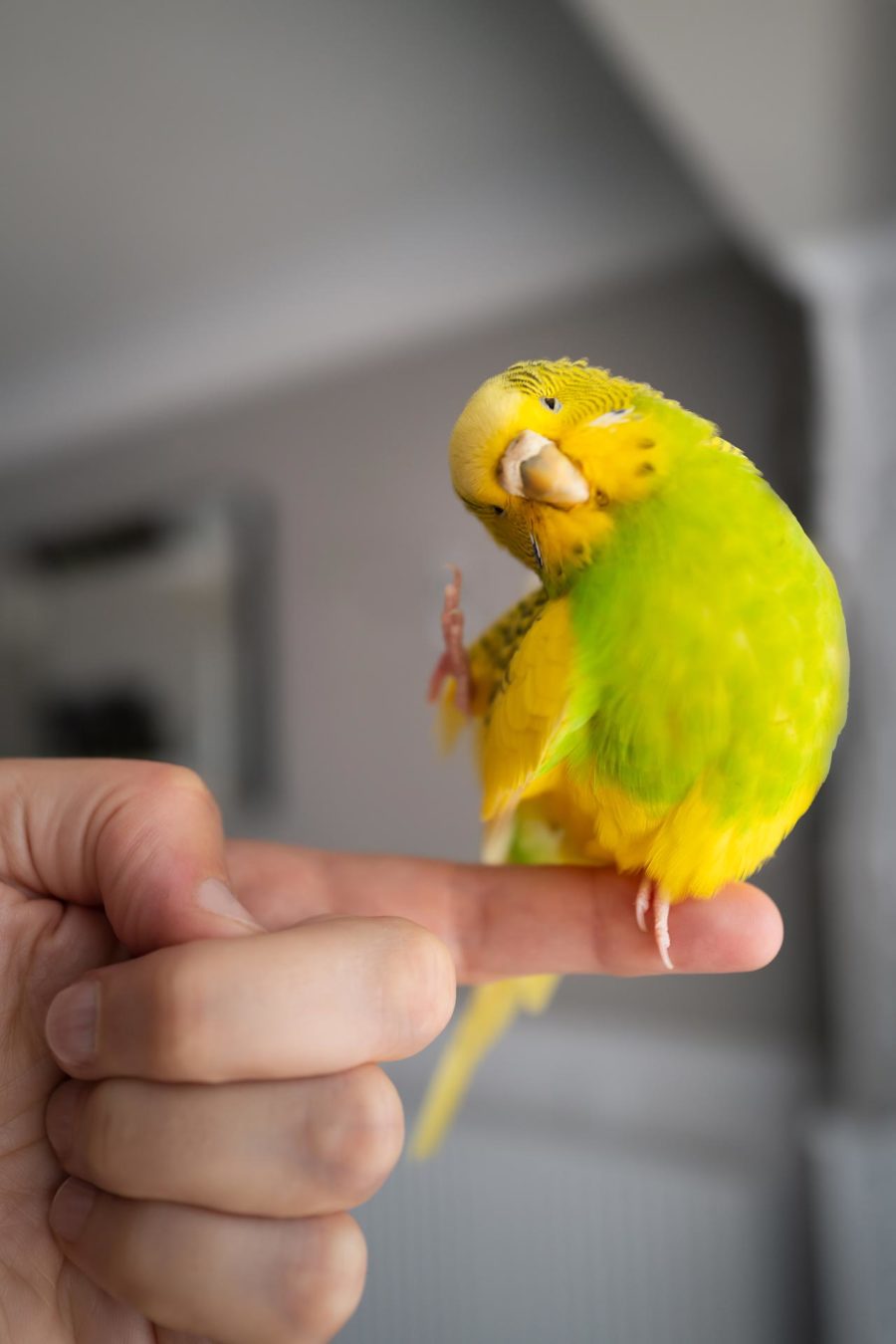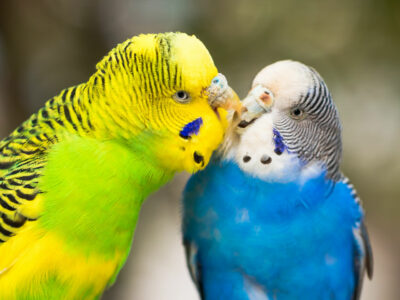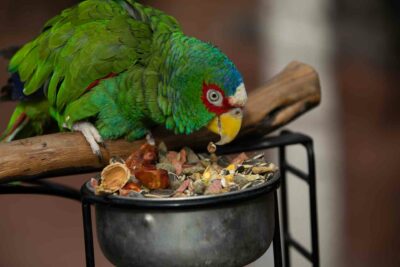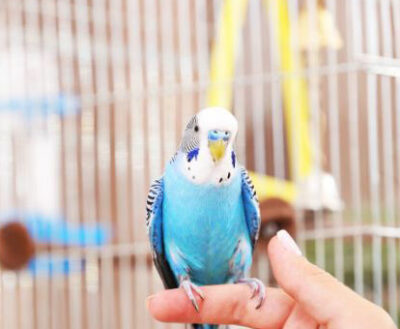
How to Tell if Your Pet Bird is Sick
Birds can be wonderful companions, but like any other living creature, they can become ill from time to time. As soon as you bring a pet bird into your home, it’s critical to establish a relationship with an avian veterinarian in order to support your bird’s health and longevity. Annual wellness exams are as essential for birds as they are for you! In addition, it’s important to know how to recognize signs of illness in your bird, as early detection and treatment can often make a big difference in keeping your feathered friend healthy and comfortable. This can be challenging, however, as birds are adept at hiding their symptoms.
While you should always consult an avian veterinarian if you have questions or concerns about your bird’s health, the following signs can help you determine if your bird may be ill:
Respiratory Symptoms
Respiratory symptoms are a common sign of illness in pet birds. Birds that are having trouble breathing may appear to pant or breathe only through open beaks with their tail feathers bobbing up and down. Other respiratory symptoms to watch out for include:
Wheezing or clicking sounds
These may indicate a respiratory infection.
Nasal discharge
If your bird has a runny nose or discharge coming from their nostrils, it could be a sign of a respiratory infection.
Sneezing
While birds do occasionally sneeze, frequent or violent sneezing can indicate respiratory illness.
When it comes to respiratory health in pet birds, preventing problems in the first place is key. “Birds have a unique respiratory system and are sensitive to environmental allergens including cigarette smoke, perfumes, scent diffusers and even cooking,” said Dr. Kemba Marshall, DVM, MPH, DABVP and the Director of Veterinary Services for Land O’Lakes, Inc. “Burnt Teflon pans can release toxic gases. Even turning on heat for the first time can cause respiratory irritation. Birds are also sensitive to drafts and should not be housed under air vents.”
Behavioral Changes
Another sign that something might be wrong with your pet bird is a change in behavior. Birds that are normally active and playful may become lethargic and listless when they’re sick. They may also lose their appetite or drink less water than usual. Other behavioral changes to watch out for include:
Aggression or irritability
If your bird is usually friendly but becomes aggressive or irritable, it could be a sign that they’re not feeling well.
Hiding
Birds that are sick may try to hide in their cage or in a corner of the room.
Excessive sleeping
While many birds sleep a lot even when they’re healthy, sleeping more than usual could be a sign that something is wrong.
Fluffed-up feathers
Healthy birds fluff their feathers as a way to stay warm or relax before going to sleep. However, if you notice that your bird’s feathers remain puffed up throughout the day, it’s probably an indication that they aren’t feeling well.
Digestive Symptoms
Birds that are sick may also experience digestive symptoms, such as regurgitation or diarrhea. Other digestive symptoms to watch out for include:
Changes in stool appearance
If your bird’s droppings look different than usual, it could be a sign that something is wrong. For example, if the droppings are a different color, consistency or have an unusual odor, it could be a sign of a digestive issue.
Loss of appetite
Birds that are sick may lose their appetite or eat less than usual.
Regurgitation
Birds that regurgitate their food may be experiencing digestive issues.
To keep your bird’s digestive system healthy—as well as to support their overall health and well-being—it’s crucial to provide them with fresh food and water daily. In addition, if feeding a seed-based diet, Dr. Marshall notes that “it’s important to know that seed hulls are not consumed by birds.” Be sure to check that the food remaining in the dish is actually whole seeds and not just the remnant hulls.
Neurological Symptoms
Neurological symptoms can also be a sign of illness in pet birds. These symptoms may include:
Head tilting
If your bird is tilting their head to one side, it could be a sign of a neurological issue.
Seizures
Birds that experience seizures may become disoriented or lose control of their muscles.
Lack of coordination
If your bird is having trouble walking or flying, it could be a sign of a neurological issue.
Other Symptoms
In addition to the symptoms listed above, there are a few other signs of illness that you should watch out for. These include:
Changes in feather quality
Birds that are sick may develop bald spots or feathers that look dull or ragged.
Lumps or bumps
If you notice any lumps or bumps on your bird’s body, it’s important to have them checked out by a vet.
Eye or beak discharge
If your bird has discharge coming from their eyes or beak, it could be a sign of an infection.
What to Do If Your Bird is Showing Signs of Illness
If you’ve noticed the above symptoms or any other unusual signs or behavior in your pet bird, here are a few important steps to take:
Separate your bird
If you have more than one bird, you should separate the one you believe to be sick from the others in order to prevent the spread of illness. Place the sick bird in a warm, quiet, and well-ventilated area with fresh food and water, and make sure they have a clean and comfortable place to rest.
Contact your avian veterinarian
As mentioned above, the most important step you can take if your pet bird is displaying signs of illness is to contact an avian vet as soon as possible. Birds’ health can deteriorate quickly, so early intervention is key. Your veterinarian can perform a thorough exam and diagnose the problem; they may also prescribe medications or recommend further tests or treatments.
Provide supportive care
While waiting to see your vet, there are some things you can do to help support your sick bird. For instance, keep their environment warm and humid, and provide them with fresh water and food. Make sure their food is easy to digest and good quality. You can also offer your bird some electrolyte solution to help keep them hydrated. Electrolytes in water should be offered in one dish; plain water should be offered in a second dish.
Monitor your bird’s progress
After your bird has received veterinary care, it’s important to monitor their progress closely. Follow your vet’s instructions carefully and keep a close eye on your bird’s behavior and physical condition. Recheck appointments are important as they allow your veterinarian to also monitor your bird’s progress.
At MyBird, a key part of our mission is to provide education and support for pet bird owners on responsible bird care. Check out our avian vet locator tool to find a qualified veterinarian near you, review our fact sheets about different types of birds, or join our active communities on Facebook and Instagram for more information on keeping your feathered friend healthy and happy!





